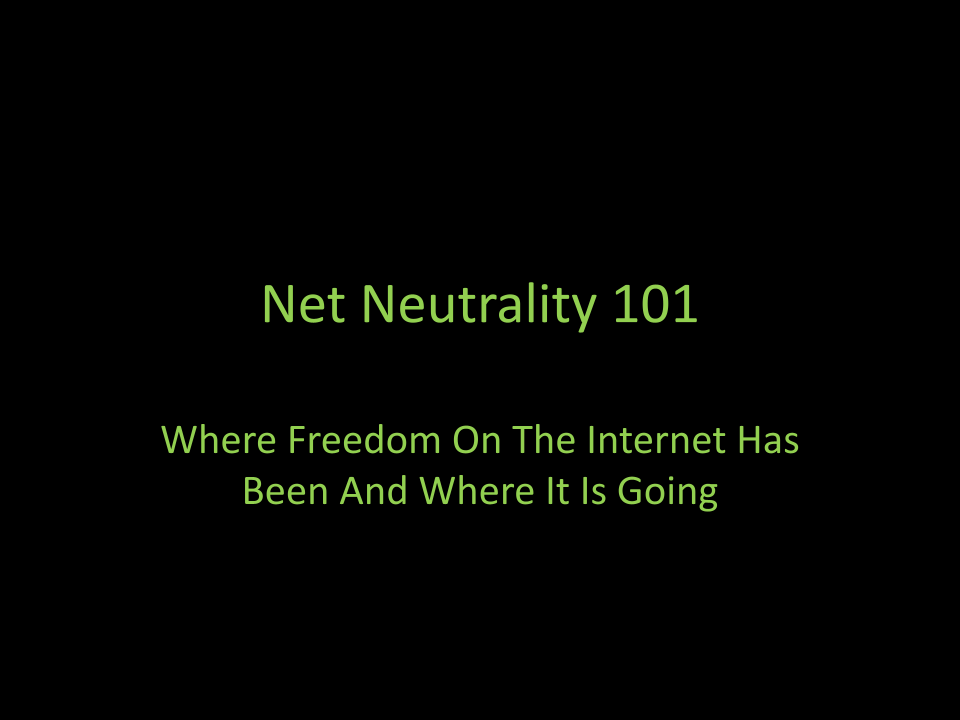EFF-Austin President, Kevin Welch, will be discussing the importance of Net Neutrality on June, 28th, 2018.
Though a hot topic, it may help to freshen up on the who, what, when, where and why of the subject.
Who/When/Where
The idea of Net Neutrality was developed by American lawyer Tim Wu, in his 2003 paper, Net Neutrality. Since then, the FCC as adopted its principles and used them as guidance for regulating Internet Service Providers.
In 2017, FCC chairman Ajit Pai argued that Title II, another piece of legislation in the evolutionary line of Net Neutrality, had hampered infrastructure investment. “Among our nation’s 12 largest Internet service providers, domestic broadband capital expenditures decreased by 5.6% percent, or $3.6 billion, between 2014 and 2016, the first two years of the Title II era,” he stated. “This decline is extremely unusual. It is the first time that such investment has declined outside of a recession in the Internet era.”
Pai and his cohorts proceeded to begin repealing Net Neutrality Laws that same year, thus bringing us to the ongoing battle to keep it alive.
Why
Essentially, the goal of Net Neutrality is to ensure that the internet remains a fertile grounds for innovation and growth.
Wu explains that in the habit of ignoring long-term growth ISPs have “shown a tendency” to ban new and emerging applications/network attachments, out of “suspicion or an interest in price discrimination.”
He stresses that ISP operators and prospect holders have a cognitive bias that makes it unlikely for them to come to the ‘right decisions,’ in terms of the development for the optimal path of innovation, that could minimize the excesses of innovative competition.
What
Net Neutrality is an attempt at striking a balance, as Wu states in the original paper: “To forbid broadband operators, absent of a showing of harm, from restricting what users do with their internet connection, while giving the operator general freedom to manage bandwidth consumption and other matters of local concern.”
Plain and simple, this translates to making sure that users and customers are able to continue using their service without ‘discrimination’ against their apps, programs etc, while ISPs are able to still police only their own local network.
Wu explains that ISPs have every right to police their local networks, but most importantly, that there shouldn’t be ‘restrictions’ across the ‘inter-network’.
Because of Net Neutrality regulations, we are able to freely and efficiently use the internet as the public utility that its become. Join us for our presentation, for these ideas help uphold the structure of the internet and its ability to nurture growth and development. Information on the event can be found here.





